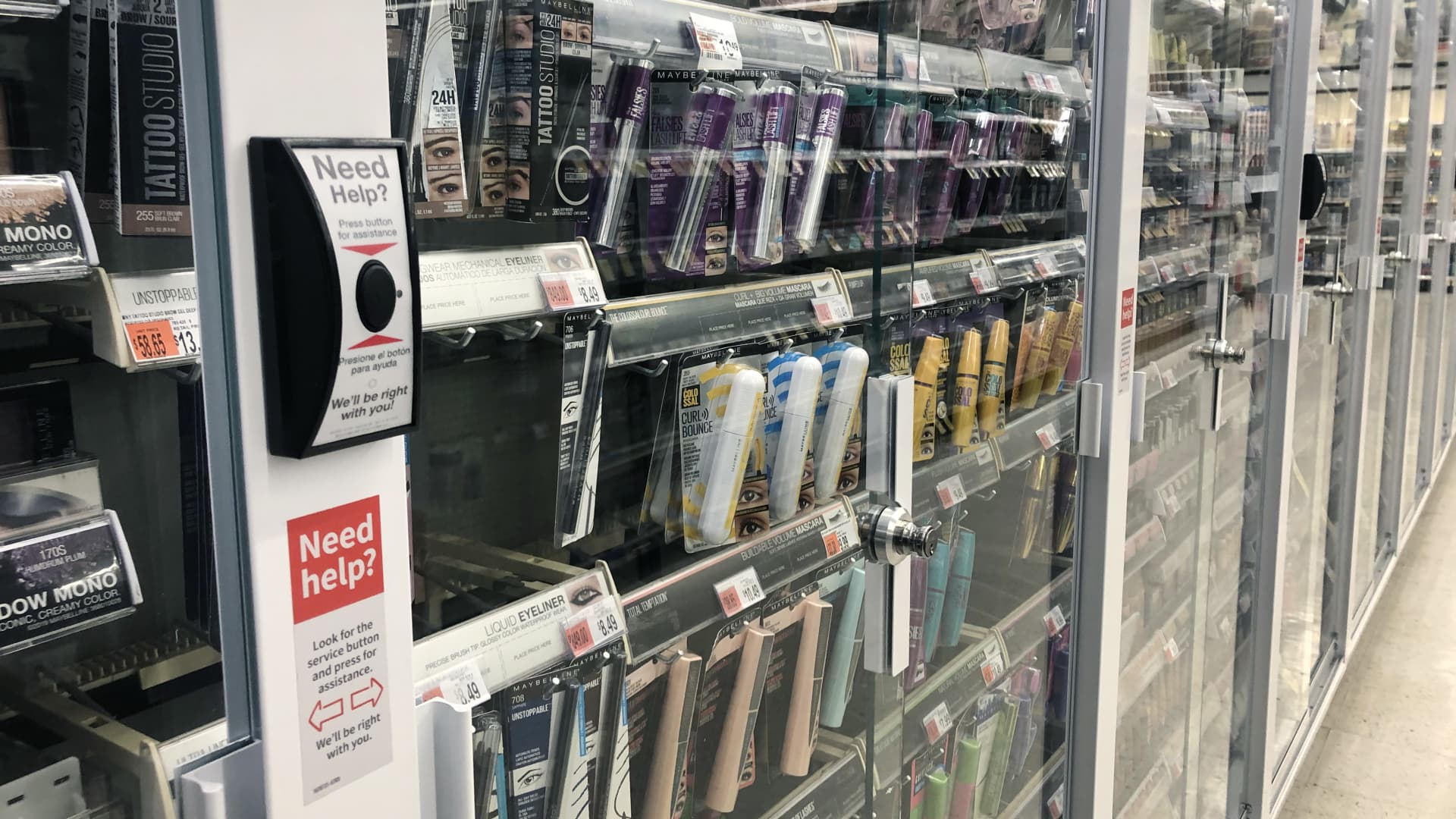Products You May Like
A top Walgreens executive on Thursday acknowledged the company may have overblown concerns about thefts in their stores after shrinkage stabilized over the last year.
During an earnings call, the company’s chief financial officer, James Kehoe, said shrinkage was about 3.5% of sales last year but that number is now closer to the “mid twos.” He also said the company would consider moving away from hiring private security guards.
“Maybe we cried too much last year,” Kehoe said. ”We’re stabilized,” he added, saying the company is “quite happy with where we are.”
Shrinkage is the difference between a company’s recorded inventory on their balance sheet and its actual inventory. It primarily accounts for items that were shoplifted but also includes inventory that was damaged, lost or stolen by employees.
Over the last two years, Walgreens has been raising the alarm about increased theft. As a result, it hired private security guards and locked up merchandise so it can’t be accessed without a store associate.
Kehoe said the company has spent a “fair amount” to crack down on the thefts but acknowledged the private security companies they’ve hired have been “largely ineffective.” These guards can do very little but call law enforcement or hold a suspect until police arrive.
“We’ve put in incremental security in the stores in the first quarter. Actually, probably we put in too much. We might step back a little bit from that,” said Kehoe. The company is using more law enforcement as opposed to private security, he added.
A Walgreens spokesperson declined further comment on the matter.
Other retailers, such as Walmart and Target, have said recently shrinkage remains a growing concern.
Walmart CEO Doug McMillon claimed he might have to close stores and raise prices if the problem doesn’t get under control. Target claimed in its last earnings report that it recently lost $400 million from shrinkage.
Earlier Thursday, Walgreens released its fiscal first-quarter earnings. It beat Wall Street’s estimates after an early flu season boosted demand for cough and cold medicine, but also reported $3.7 billion in losses after the pharmacy chain agreed to pay a hefty $5.2 billion settlement related to opioid litigation.
